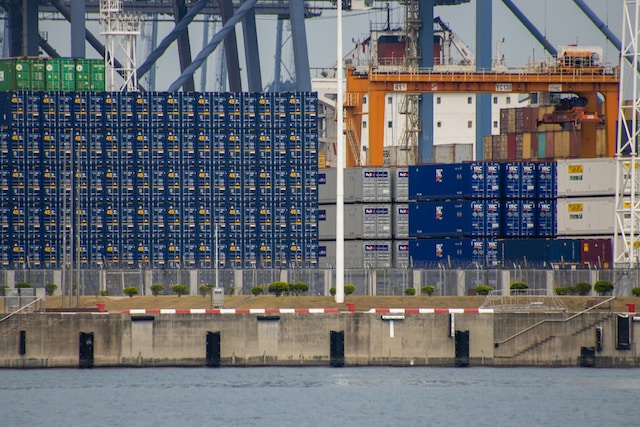Risk Management Before Contracting with Chinese Companies in Bulk Commodity Trade
The first step in risk management for bulk commodity trade is to proactively address potential risks before entering into contracts. The magnitude and high capital proportion involved in such trades make even the slightest oversight in the buying and selling process capable of deviating the actual results from the anticipated objectives, causing immeasurable losses to enterprises. To minimize risks, businesses must adopt proactive measures to lower, avoid, share, and control risks based on different situations.
1. Screening the Counterparty’s Legal Qualification
The first aspect is to verify the licenses and qualifications of the counterparty. This can be achieved by searching relevant software or visiting administrative approval departments to retrieve the counterparty’s business registration information. It is essential to scrutinize whether the counterparty holds a valid business license issued by the administrative authorities, whether it has undergone the required annual inspections, and whether the transaction takes place within the legal operating period.
Furthermore, it is crucial to examine whether the counterparty possesses the relevant professional qualifications and grades that align with the trade requirements. For instance, in trades involving bulk commodities such as coal, it is necessary to inspect whether the counterparty possesses a coal operation license and other relevant qualifications. This involves checking the legitimacy, validity, and scope of activities under the qualifications to avoid any contract validity issues.
Additionally, it is vital to carefully examine the officially registered name of the counterparty. A slight difference in the name may result in changes in the contract’s parties or unnecessary economic losses for the enterprise. Instances have been reported where disputes arose due to a minute discrepancy in the legal names of the contract parties, leading to ineffective court preservation measures and the unfreezing and transferring of frozen funds. A mere difference in one word caused needless financial loss for the complying party.
Lastly, identifying the actual controlling person, legal representative, shareholders, and executives of the company is crucial. The scrutiny of relevant personnel identities relates to the effectiveness of the legal representative’s signature on behalf of the enterprise, the issue of fund trusts during the bulk commodity trading process, and the practical recovery of losses.
Apart from the above, bulk commodity trading enterprises should also examine the counterparty’s organizational structure, business premises, and ability to bear civil liabilities before contracting to ensure comprehensive screening of the counterparty’s legal qualifications.
2. On-Site Inspection for Comprehensive Verification
Before entering into contracts for bulk commodity trade, an inspection team should conduct on-site inspections of the counterparty. This inspection should not be superficial but rather comprehensive and rigorous. For example:
(1) Examination of various licenses and qualifications of the counterparty.
(2) Verification of the counterparty’s creditor-debtor status.
(3) Validation of the counterparty’s annual inspections, registrations, and previous rewards and penalties through visits to the industrial and administrative departments.
(4) Confirmation of any mortgage or guarantee for immovable property through visits to the real estate registration management department.
(5) Confirmation of tax compliance through visits to the tax department.
(6) Verification of the counterparty’s environmental pollution status through visits to the environmental protection department.
To avoid a superficial inspection, it is recommended that the inspection team comprises senior management, business personnel, financial personnel, and legal personnel, dividing their responsibilities for a comprehensive examination.
3. Evaluation of Counterparty’s Performance Capability
Firstly, it is essential to identify whether the counterparty genuinely possesses financial strength. The ultimate goal of any trade is to earn a profit, and the same applies to bulk commodity trade. Given the high volume and significant capital proportion involved, the consequences of any negligence resulting in losses would be substantial. Therefore, the counterparty must have sufficient financial strength to ensure not only the stability of the trade but also effective recovery in case of future losses.
In this regard, the focus should be on the counterparty’s registered capital, sources of funds, bank deposits, as well as whether any of the counterparty’s properties have been seized, impounded, or frozen by judicial or administrative authorities.
Secondly, the counterparty’s robust production (supply) capacity should be examined. As mentioned earlier, bulk commodity trades involve large quantities of goods. Suppliers such as coal washing plants and ore dressing plants must possess a robust production (supply) capacity. Otherwise, any situation leading to production stoppage or an inability to supply during the contract’s execution would result in losses for the counterparty.
To evaluate this, the inspection should focus on the counterparty’s production scale, technological level, product quality, and other relevant factors.
Conclusion
Economic transactions are sensitive activities, and bulk commodity trade is especially susceptible to domestic and international political and economic influences. Currently, with international and domestic economic volatility, along with a sluggish real estate market, the construction materials market has been in a downturn. This directly affects the demand for construction materials such as steel, while reducing the demand for resources like coal. Consequently, the overall stability of the bulk commodity market is uncertain, and enterprises lacking sufficient financial strength and supply capacity are likely to face frequent default situations.
To tackle these challenges, bulk commodity trade enterprises must conduct comprehensive and systematic risk prevention and control work before contracting. By doing so, a solid foundation can be established for future trades, ensuring that the enterprise can respond effectively to any sudden circumstances and maintain the stability and security of its transactions.








